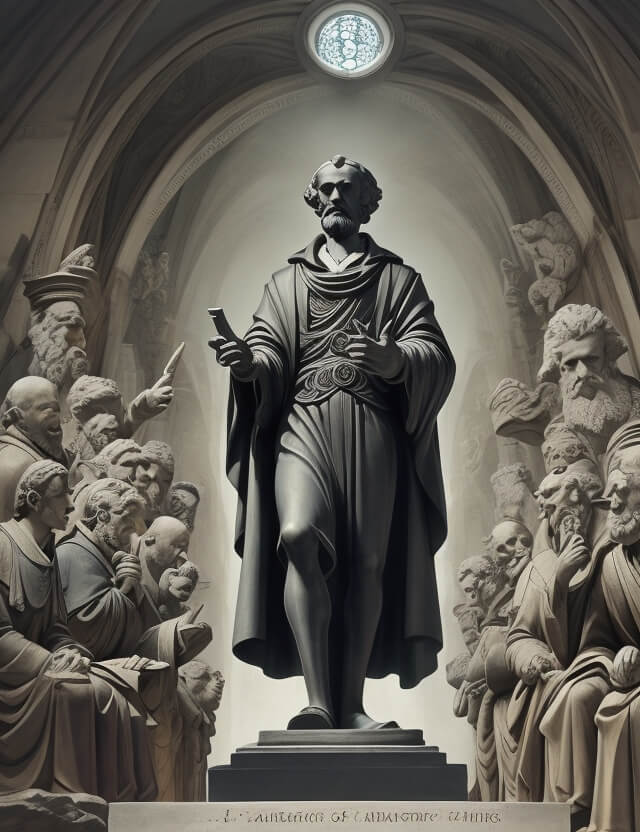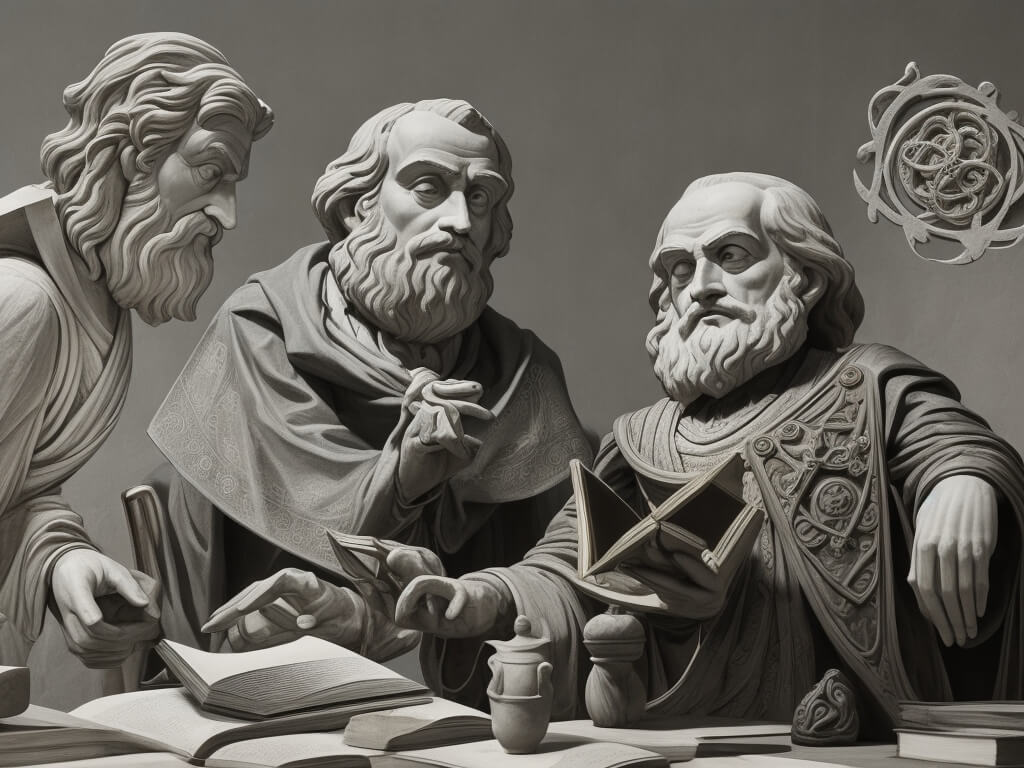Dive into the rich history of causality in philosophy, from Plato and Aristotle to Descartes and Hume. Explore the evolution of thought on cause and effect, from medieval views to Kant’s pivotal insights, shaping our understanding of the intricate threads that weave through the concept of causality.
CAUSALITY, in philosophy, involves the effect of one event, process, or entity upon another. It is the necessary connection of events through cause and effect.

The Early Tradition
Philosophical inquiry into causality is a crucial part of the history of Western thought. Plato and Aristotle introduced a distinctively philosophical feature into the early discussion of “why things are as they are” by wondering about the nature of causality itself. This is a different question from “What causes X?” which is usually a scientific inquiry. The philosophical question about causality is “What is, or what is meant by, a cause?”
Aristotle gave cause a far broader definition than it is generally given today. He distinguished between four types of causes: material cause, the matter from which an entity is formed; formal cause, the pattern or essence imposed upon the matter; efficient cause, the force or agent producing the thing; and final cause, the purpose or end for which it was produced.
Medieval philosophers adopted Aristotle’s notion of four causes and regarded an effect as flowing from the nature or essence of its cause. Three theses about the nature of causality were held to be indisputable: nothing can come from nothing; nothing can give what it does not have; and a cause must have at least as much perfection (or being) as it gives to its effects.
The metaphysical views of René Descartes ( 1596-1650 ) concerning causality closely resembled the medieval view. However, Descartes felt that the physical (nonmental) world was strictly determined in a mechanical fashion—that it was virtually a mechanical system “operated” by the First Cause, God. Sir Isaac Newton ( 1642-1727) had a similar view, observing that the regular causal connections observed in nature were the working out of requirements issuing from God.
Gottfried Wilhelm von Leibniz (1646-1716) believed that there were an infinite number of created individual substances (monads), which did not interact causally with each other, but acted in accordance with a preestablished harmony, set up by the Prime Monad, God, between all finite things. Benedict de Spinoza ( 1632-1677 ) also believed that all things stemmed from one cause, of which everything in the world was a manifestation and expression.
Skeptical Tradition
The tradition within which David Hume was to raise “skeptical” questions about the nature of causality can be viewed as starting with John Locke (1632-1704). Locke equated cause with “active power,” the capacity to initiate motion or to think. He observed that it was not possible to get a clear notion of active power from experience of physical objects (ideas of sensation)—in other words, that cause could not be clearly experienced as operating in nature—and that the notion of cause must come from the operations of the understanding (ideas of reflection).
George Berkeley (1685-1753) noted that Locke’s thesis entailed the view that men could not know there were causal agents in the physical world, since the only experience they had of causality was of the operations of their own minds thinking and willing. The regularity with which some perceptions succeeded others in men’s minds was the pattern set by God in nature, the “divine language” of the Author of Nature speaking to man.
David Hume (1711-1776) claimed that there were no clear perceptions of active power, or cause, either physical or mental. What he found when he analyzed cause and effect situations were successions of perceptions constantly conjoined. Experience led him to expect that these perceptions would always be so joined. But the relationship between the perceptions was not one of logical necessity. In logic one could deduce B from A: if A; then, necessarily, B. But one could not by pure logic deduce from the concept of a cause what any of its effects would be. A newly created Adam, Hume remarked, could not possibly have logically deduced from his first experience of water that if he held his head in it long enough he would drown.
The link between a cause and its effect, Hume continued, must be supplied by experience. At its best, however, experience reveals what happens to be the case in the world, not what necessarily is the case. Experience merely teaches that certain events constantly occur in sequence, and one seems dependent on the other. Necessity cannot be experienced, and there is, therefore, no certainty whatsoever that a supposed effect B must be produced by a supposed cause A—that when the wind blows, the leaves must move. Causality is merely the expectation, derived from past experience, that this will be the case.
Thus primitive man and sophisticated man are basically akin in the naïveté of their causal beliefs. Primitive man, with his limited observational resources, may very well believe that night is the cause of day, since he observes that day regularly follows night. Sophisticated man still thinks in terms of cause and effect; but, capable of a greater range of observation, he considers both day and night effects, and other phenomena, such as the rotation of the earth, as causes. The most sophisticated scientist bases his causal beliefs on even more extended observation, but the principle of causality used in his analyses—that one event necessarily follows or precedes another because, in experience, they have always been conjoined—is the same process of reasoning used by the primitive man.

Immanuel Kant ( 1724-1804 ) viewed Hume’s analysis as damaging to belief in the universality and necessity of basic scientific truths. He resolved the dilemma between the credibility of scientific laws and the questionable nature of cause by designating cause as a necessary, unavoidable, a priori category of the mind. One of the conditions enabling man to think about or judge objects of experience, Kant contended, is that he categorizes some of them as causes, some as effects. Furthermore, it would be impossible to imagine an empirical counterinstance to the claim that every event has a cause. The causal connections in nature were necessarily imposed on it by human judgment, and men could not think of nature without imposing that structure on it in the process.
The discussion of causality continues today. Emphasis is directed to questions of whether such diverse entities as human nature and microunits of matter are causally describable, and whether scientific investigation should proceed on the assumption that things are definitely determined by their “causes” or that it is merely probably that one thing flows from another.
mavi